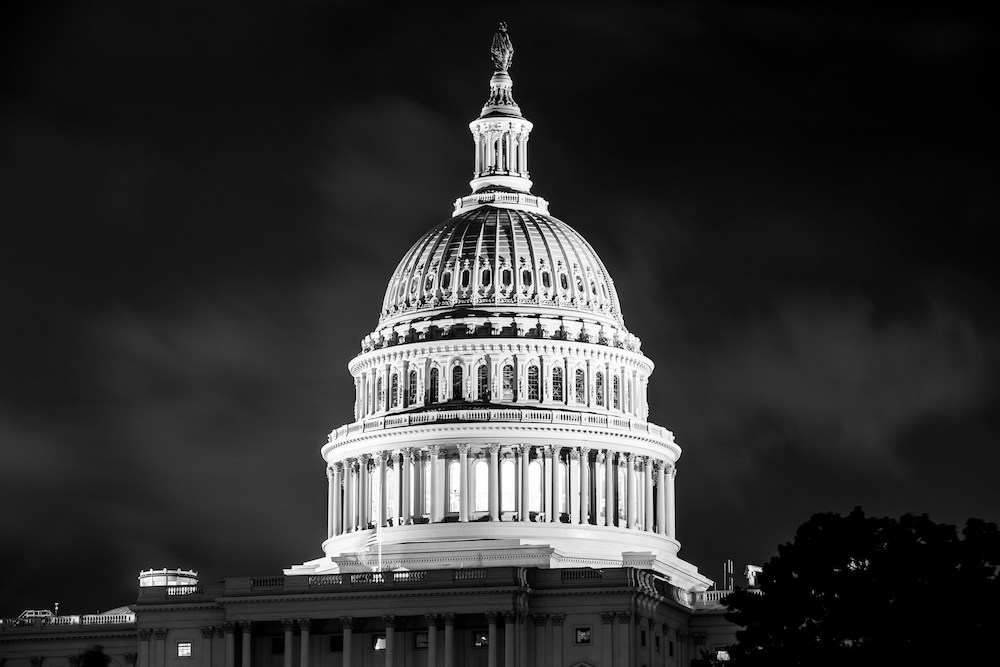
- Details
- By Brian Edwards
- Finance
U.S. Sens. Tina Smith and Mike Rounds reintroduced bipartisan legislation Tuesday that would make federal lending programs more accessible to tribal communities and other underserved areas by reducing minimum loan requirements and extending program authorization.
The CDFI Bond Guarantee Program Improvement Act of 2025 would strengthen and expand community development financial institutions (CDFIs), which play a critical role in bringing capital and financial services to small businesses, homeowners and housing developers. The legislation would make the federal loan guarantee program more accessible to smaller CDFIs by reducing the minimum bond size from $100 million to $25 million, allowing CDFIs to access long-term, stable funding for economic development activities in underserved communities.
The bill would authorize the bond guarantee program for four years and remove annual limits on loan guarantees. CDFIs have operated the program since 2010 without taxpayer subsidies, using federal backing to access long-term, low-cost capital for community development projects.
“Unequal access to capital and financial services is a key driver of economic disparity around Minnesota,” Smith (D-Minn.) said in a statement. “This legislation will jumpstart economic development in these communities by expanding and enhancing a program with a track record of effective capital investment and community development.”
Current program rules requiring $100 million minimum loans limit access to smaller CDFIs that serve tribal communities and rural areas. The program's authorization expired in 2014 but has continued through year-by-year extensions in annual appropriations bills. Smith and Rounds first introduced legislation to address this in 2023, but it did not advance beyond committee.
Republican co-sponsor Rounds of South Dakota said the changes would help CDFIs serve more communities. Sen. Mike Crapo (R-Idaho), who supports the bill, said reducing minimum loan amounts would "enable CDFIs to serve additional, smaller entities and maximize the loan's impact to transform businesses and communities through market-based investments."
The legislation has bipartisan support from 11 senators, including Montana Republicans Steve Daines and Tim Sheehy, whose state includes seven tribal reservations. Sen. Ruben Gallego, (D-Ariz.), whose state has 22 federally recognized tribes, said CDFIs “play a critical role in helping hardworking families achieve the American dream.”
Daines emphasized the program's importance for rural communities, stating the bond guarantee program “plays a crucial role in maximizing the effectiveness of CDFIs by ensuring underserved communities have access to the financial resources and services they need, especially in Montana's rural communities.”
Pete Upton, CEO of the nonprofit Native CDFI Network, said the lower minimum requirements would help Native lenders grow. Most Native CDFIs have assets under $20 million, with some between $20 million and $50 million, according to Upton. “By lowering the requirements, it just gives our Native CDFIs the ability to leverage up and increase our asset size,” he said. The changes would allow Native CDFIs to “continue to grow their asset sizes, become larger and, eventually, be self-sustaining.”
The bill comes two months after the Treasury Department assured that CDFI Fund programs would continue operating normally despite a March executive order that threatened to dismantle parts of the agency. Treasury officials wrote that the “CDFI Fund programs and related activities are statutorily authorized. The CDFI Fund is operating as normal and does not anticipate any disruptions to the programs,” per prior Tribal Business News reporting.
Sixty-nine Treasury-certified Native CDFIs currently provide financial services in underbanked Native and rural communities. These institutions demonstrate strong performance, with a loan default rate of 0.36% in 2023 — roughly half the rate of traditional banks.
The legislation is cosponsored by Sens. Amy Klobuchar, D-Minn.; Cynthia Lummis, R-Wyo.; Cory Booker, D-N.J.; and John Hickenlooper, D-Colo., according to the statement.
